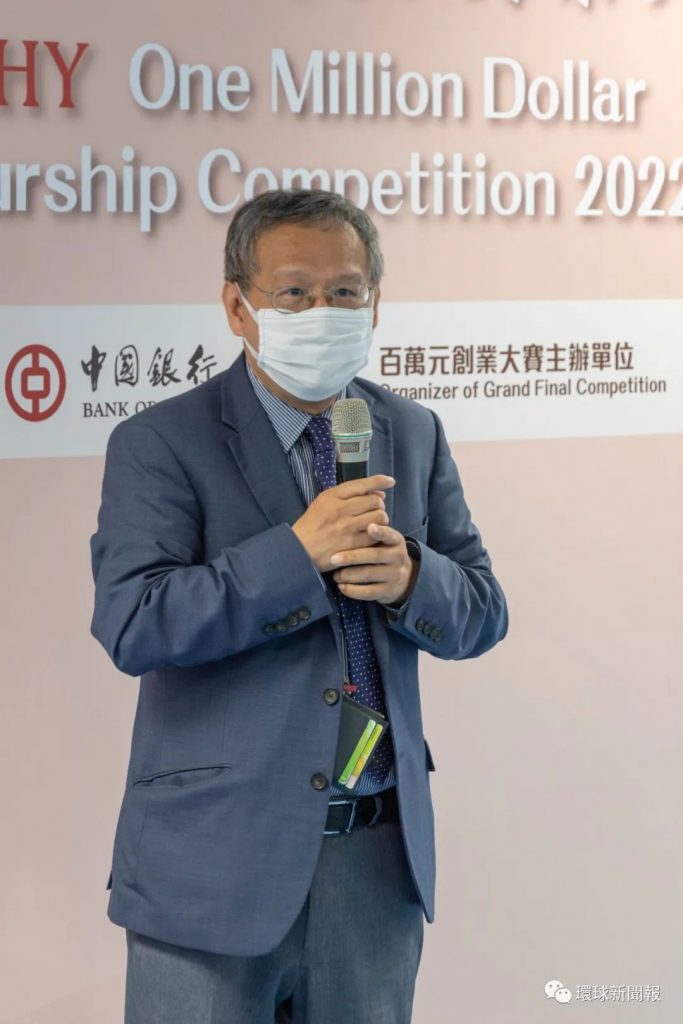
Prof. Jerome Yen
With the growing trend of integrating higher education, technology and the economy, higher education institutes have been conducting talent trainings and scientific research together with social services. The collaborations between academia and industry can drive the development of the economy and the whole society.
Macao’s future economic development could consider being in line with the development direction of the national policy, such as diversifying the sole gaming economy into dual-focus economy of tourism and finance. For example, the University of Macau (UM) and other higher education institutes could focus on cultivating scientific research teams in financial innovation (e.g., financial products with Macao characteristics) and financial technology (e.g., cross-border payment systems).
Presently, UM has expertise in blockchain, artificial intelligence, big data, financial product design and pricing, and quantitative trading. As Macao is in the process of revising its financial legislations, it is worth considering how research and achievements of higher education institutes, such as the UM, can fuel the success of local Financial Technology (FinTech) start-ups.
Apart from FinTech development, Macao could also consider incorporating blockchain technology to the food sector. Food technology is a multi-billion-dollar industry and Macao could consider setting up a food research institute to support innovative food development and food safety management. This is a relatively low-risk industry with short-term results. For example, if Portuguese egg tart can be made to have a longer shelf life without changing its taste, it can become a popular souvenir.
In addition, developing medical tourism and Chinese medicine industries in Macao has huge potential. With the example of UM, UM has been building a platform for technology transfer and innovation and entrepreneurship, assisting research teams to access capital and markets, and striving to promote the development of innovation and technology with the supporting funds of the Macao government. The Institute is committed to promote interdisciplinary research and knowledge exchange among universities in Macao, the Greater Bay Area and overseas.
At present, the gaming sector is the most important economic pillar in Macao, where many cutting-edge technologies and systems are used, such as the security systems, data analytics and decision-making models. Nonetheless, with the lack of a platform for research teams to develop prototypes and participate in the back-end system innovation in Macao, the contribution of higher education institutes is limited.
Therefore, a self-sustained ecosystem is needed to provide platforms for industry-academia collaborations in Macao. These academic achievements can move from publications to patent application and industrialization, ultimately generating socio-economic effects.
In addition, Macao can also consider nurturing the education sector in Macao. During the two-and-a-half-year pandemic period, the number of applications for undergraduate and postgraduate degrees in Macau nearly doubled. Members of the Legislative Council have also suggested using higher education as a way to support the diversification of Macao’s economy. If 100,000 mainland and overseas students could be attracted to Macao for higher education, it is estimated that this could generate an annual revenue of approximately MOP30 billion.
Besides, medical tourism is another potential sector to nurture. Talents and technological achievements of the two universities in Macau can support the development of this sector. If we can go one-step further and introduce high-end beauty medical teams from Mainland China to Macao, we can also create a MOP10 billion industry in Macao.
The industry I am currently working in is an incubation platform that helps research teams of local universities to connect with capital and the market, helping university start-ups to commercialize their research results and innovative ideas in the market. As such, it plays an important role in the transformation of research results into practical use. Under the epidemic and a moderately diversified economy, there is a new trend to transform the research results to industry practice, contributing to the Macao economy. Higher education institutes are only one of the stakeholders, the overall development still relies on the collaboration of the Macao government and local community, building a truly Macao-based industry-academia-research ecosystem.
In fact, in terms of the industry-academia-research development, the relationship between Macao and Mainland China is like Macao as a small cycle that is backed by the larger cycle of Mainland China. There is potential for cooperation in some industries such as tourism, entertainment, food, and so on. With the Hengqin Guangdong-Macao Deep Cooperation Zone, Macao can create a self-sustained ecosystem for appropriate diversification of industries, from technology and product development to final marketization, eventually leading to the gradual development of an appropriately diversified local economy.

